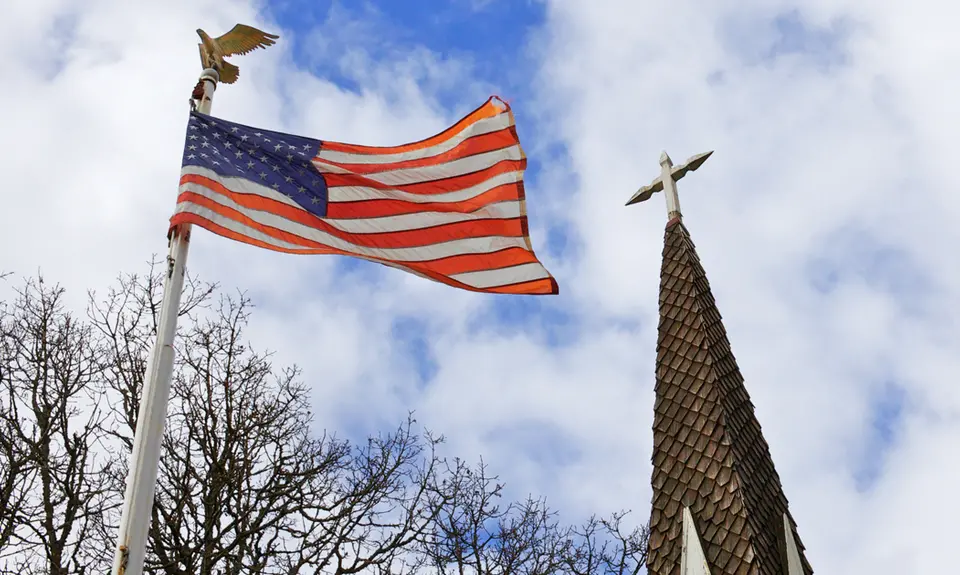After the U.S. Supreme Court decided Masterpiece Cakeshop in 2018, it sent Arlene's Flowers back to Washington State for further review—yet another case in which the far-right group Alliance Defending Freedom is pursuing a legal right to discriminate. In response, People For the American Way Foundation and allied organizations have filed a friend-of-the-court brief noting that the Establishment Clause bars the granting of religious exemptions when their effect would be to impose undue costs, burdens, or harms on innocent third parties like Curt Freed and Robert Ingersoll. Our introduction follows below. Click here to download a PDF copy of the full brief.
IDENTITY AND INTERESTS OF AMICI CURIAE
Amici are religious and civil rights organizations that represent diverse beliefs, experiences, and faith traditions but share a commitment to religious freedom and to ensuring that LGBTQ people, and all Americans, remain free from officially sanctioned discrimination.
Amici have a strong interest in ensuring that our nation’s fundamental commitment to equal treatment, equal dignity, and equal respect is never eroded or tainted by misusing the language of religious freedom to afford official imprimatur to the maltreatment of people based on their religion, race, sex, sexual orientation, or other protected characteristics. Amici write to explain why the fundamental protections for religious freedom do not and should not override Washington’s prohibitions against discrimination in places of public accommodation. Amici are:
- Americans United for Separation of Church and State.
- Anti-Defamation League.
- Bend the Arc: A Jewish Partnership for Justice.
- Disciples Center for Public Witness.
- Disciples Justice Action Network.
- Equal Partners in Faith.
- Hadassah, The Women’s Zionist Organization of America, Inc.
- Hindu American Foundation.
- Interfaith Alliance Foundation.
- Jewish Social Policy Action Network.
- National Council of Jewish Women.
- People For the American Way Foundation.
- Reconstructionist Rabbinical Association.
Individual descriptions of the amici appear in the Appendix.
STATEMENT OF THE CASE
Amici adopt and incorporate the Statements of the Case in Respondents’ briefs.
SUMMARY OF ARGUMENT
Religious freedom is a constitutionally protected value of the highest order. The Free Exercise and Establishment Clauses work in tandem to secure the rights to believe, or not, and to worship, or not, according to the dictates of individual conscience. But the guarantee of religious freedom is not, and never has been, a license to discriminate against others.
Yet Arlene’s Flowers asks this Court to grant it just such a license. Ostensibly to avoid discrimination against it, the shop asserts entitlement to a constitutionally mandated exemption from neutral, generally applicable laws that are intended to protect minority and marginalized groups, so that it may legally discriminate against customers who do not conform to its religious views.
The Establishment Clause, however, bars the granting of religious exemptions when their effect would be to impose undue costs, burdens, or harms on innocent third parties. The flower shop’s sought-after exemption would do just that: It would confer on all commercial establishments official license to deny statutorily mandated equal service to anyone who does not live according to the business’s religious views. Such exemptions cannot be required by the Free Exercise Clause (or by any statute) because granting them would violate the Establishment Clause.
Nothing in the Supreme Court’s decision in Masterpiece Cakeshop, Ltd. v. Colorado Civil Rights Commission, 138 S. Ct. 1719, 201 L. Ed. 2d 35 (2018), alters that analysis. In fact, Masterpiece reinforces the longstanding principle that religious objections to neutral, generally applicable laws are not a constitutional license to discriminate. Masterpiece held only that government must not selectively enforce generally applicable laws to give effect to religious animus—which did not occur here.
What is more, the flower shop’s asserted free-exercise right to violate antidiscrimination laws would undermine the protections that those very laws afford to religious liberty. Far from interfering with, impeding, or frustrating the enjoyment of free exercise, antidiscrimination laws extend essential protections to religious groups—just as to others who may face discrimination—thus advancing the aims of the Religion Clauses.
The predictable consequence of granting the flower shop an exemption here would be to erode these protections for all, and most especially for minority faiths, LGBTQ people, and other historically marginalized groups. That result is no more warranted today than it was before Masterpiece was decided.
